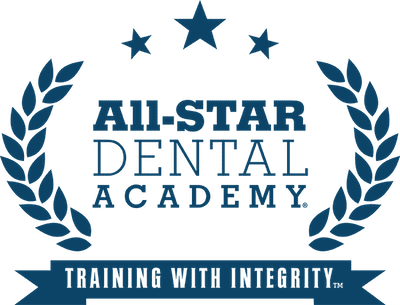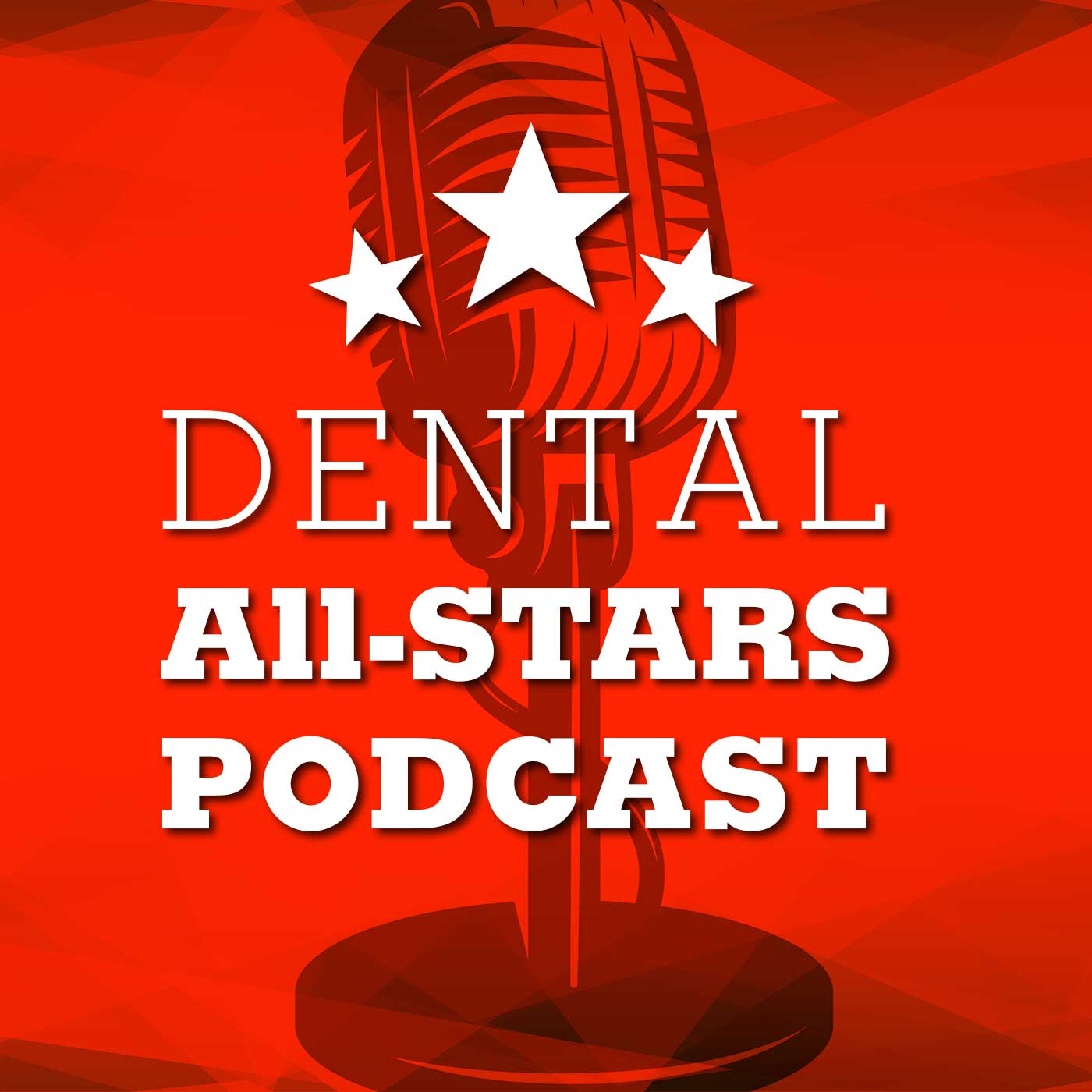Do you ever get push-back from your team about doing the things you ask them of them?
The idea that you would get resistance from your team seems crazy since you are the boss, right? Does your team outright ignore your directions, or stare back blankly as if they will ultimately ignore everything you just said? Do they resist important training because they say “They already know what to do?” If you answered yes to any of these important questions, or if you are silently nodding along, then keep reading…

You are not alone!
Just about every manager has been in this situation so don’t be too hard on yourself. I have personally been there in my time as a manager of a $3-million-dollar retail store, and then again while helping manage my father-in-law’s dental practice for almost a decade, and even now in my work at All-Star Dental Academy. And most dental schools don’t teach enough about “business” (or more importantly “management”) even though you are now responsible for not only owning your dental practice but also being CEO, wearing the management hat, the trainer hat, and the producer hat – all at once. It’s a LOT – we know!

Avoid the “Triple F” approach
Battling it out with your team doesn’t HAVE to happen. It seems like most dentists take the “Triple F” approach with their team: 1) Fight them, 2) Fear them, or 3) Fire them. All these are reactive – you are merely responding to the team and their reluctance to follow direction – and never really get to the heart of the problem. Team unity is achievable when you set the right expectations for your practice.

Top 5 biggest mistakes
I will discuss the 5 biggest mistakes dentists make with their dental teams when it comes to training and managing them.

Mistake #1: Calling it “Work”
When you call something “work” or “tasks” you conjure up feelings of drudgery, boredom, stress, and inspire a put-upon attitude in the team.
Instead, why not just rebrand activities to “Team Training Contributions” or “Fun Improvements for the Team, aka (FITT).” While it may seem just to be semantics, as we learned in the All-Star Training Program, communication success lies in using positive language. The specific words you use can make a big difference in how an assignment will be perceived.
Communication success also comes from how you say the words you choose. Explain to your team why the tasks are critical to patient care, keeping the practice running smoothly, and how their efforts make a meaningful contribution to the entire team.
Will this new terminology be the 180-degree turnaround that you need to get your entire team on board with training 100% of the time? We can always dream. However, communicating in this way will send a clear message that their efforts have a huge impact on the success of the practice.

Mistake #2: Low Expectations
Your team is on to you. If they know that you, the dentist/owner, has an “I’ll take what I can get from my team” attitude towards work and training, they will be sure to work only as “hard” as they need to meet your expectations. In general, people will do the minimum required to live up or down to your expectations. So, if you are communicating (either literally with the way you speak to the team, or unconsciously) that their help is a BONUS rather than a part of their job description, it’s time for a major shift.
In YOUR dental practice, you are a TEAM, and EVERYONE does training and contributes, regardless of their role, how busy, or how much they resist or complain. Think of the most successful hotel with an emphasis on customer service – The Ritz-Carlton. They require a minimum of 250 training hours before assignment to a customer-facing role. And then every single year, each employee, from executives and upper management to the janitors and maids, is required to train and re-certify in the company’s customer service standards and mission.
The Ritz-Carlton not only attracts the best team members that share their vision of service excellence, they keep up momentum and consistency with training a part of the organization’s culture. With high expectations and an “all-in” attitude, team members will enjoy a sense of belonging, purpose, and satisfaction in being a part of what makes your practice amazing – it’s like a family… everyone must pitch in!

Mistake #3: Not Taking the Time to Train (and not Setting Aside Specific Time to Train)
This is a challenge in many offices. Dentists/owners may be aware they need to train the team to improve the practice, but taking the time to train often doesn’t happen. A failure to prioritize time for training can happen when you have a new team member, or if you just want to train your existing team.
There are several reasons why training doesn’t get scheduled.
First, offices where the dentist is passive about the team’s training have more difficulty getting the team to do training. Practices where the dentist is involved in training (in any capacity) find it much easier. For example, I know, having spoken with thousands of dentists and team members over the years, that when the dentist is training alongside the team or they are learning the material that the team is working on, there is a much higher rate of success.
Even if the dentist/owner is overseeing the training (in the form of meetings, accountability sessions, or individual or group discussions), there is a much higher likelihood of team compliance than those who entirely hand over responsibility for training to the team or individuals to “just get it done.” The dentist/leader’s actions as the “visionary” for the practice will speak much louder than anything they will say. Dental training for the practice is much like learning a new language. If the leader of the group doesn’t show commitment and doesn’t speak the same language as the team, why will the team members feel it’s important?
Failure to launch
Second, I often hear that dentists complain that the team doesn’t complete training when it is assigned. My first question is for the dentist: are you giving the team a task with a specific objective and a deadline for completion? And this applies to all assigned tasks, not only training.
If your desire is for the team to get their training done, it’s highly recommended that you set out a timeline of what to do each week and when it’s due. For example, with All-Star training we recommend just 20 minutes weekly of lecture videos and another 20 minutes for discussion and practice/role playing.
It’s ideal if the dentist and the team can do the training together. The biggest part of making sure the training gets done is blocking off the time you intend to train on your schedule in advance. Keep the training time sacred. Pretend it’s like taking important medicine for your practice (because it is!). If you are unable to train together, then have your team members coordinate to plan how they will schedule their time so that each person has an opportunity to rotate and get their training done in a private room or area where they will not be interrupted.
I do not recommend having the team wait and reactively schedule training during “downtime.” For one, downtime means something different to each person. You might consider a slow day to be downtime, but the team might feel like that day is catch-up time for other duties.
If you want training sessions to be taken seriously, they need to be on the schedule. Also, if you are not training together, set clear expectations on how much they are to do, when it’s due, and what assignments to complete. For example, we hired an admin person and we assigned them to watch a video by the end of the week, making sure the employee understood that it was due by noon the following Friday. We set clear expectations about which videos to watch, and that they were to report back to us with notes reflecting their thoughts on what they watched along with key bullet points highlighting the lessons learned. This approach dramatically increases the likelihood that the team will complete their training assignments and do the training in the manner you want it done!

Mistake #4: Failure to Make Training a Part of the Routine
Training and systems make the world go round (look at how well it works for companies like Chick-fil-A and Disney) – especially in a busy dental practice where there are so many things happening daily. Set the tone for all team members (and especially when on-boarding new hires) that training time is no different than doing typical tasks like calling patients, checking people in and out, treatment diagnosis, filing insurance, scheduling appointments, etc.
Training should be blocked off, planned as far out in advance as possible, and is a part of your regular routine. When the focus is on the routine, training times blocked on the schedule and kept sacred, you leave very little room for debate. The routine of training becomes the “boss,” so you get to relax!

Mistake # 5: Forgetting to Show Appreciation
Even the most mundane tasks are easier to complete when you feel appreciated. When your team understands that you not only see them stepping up, but that you also appreciate the effort -that’s priceless. Even more so when you share that their effort has a positive impact on the whole team’s success (better bonuses for all, more fun team events, less stress, higher wages, etc.).
And pointing out the benefits of training goes a long way towards preventing power struggles and promoting team cooperation!
***
You are invited to attend a free training webinar: Dental Practice Excellence, where we examine some of the most common pitfalls in dental practice success, and how to avoid them.








